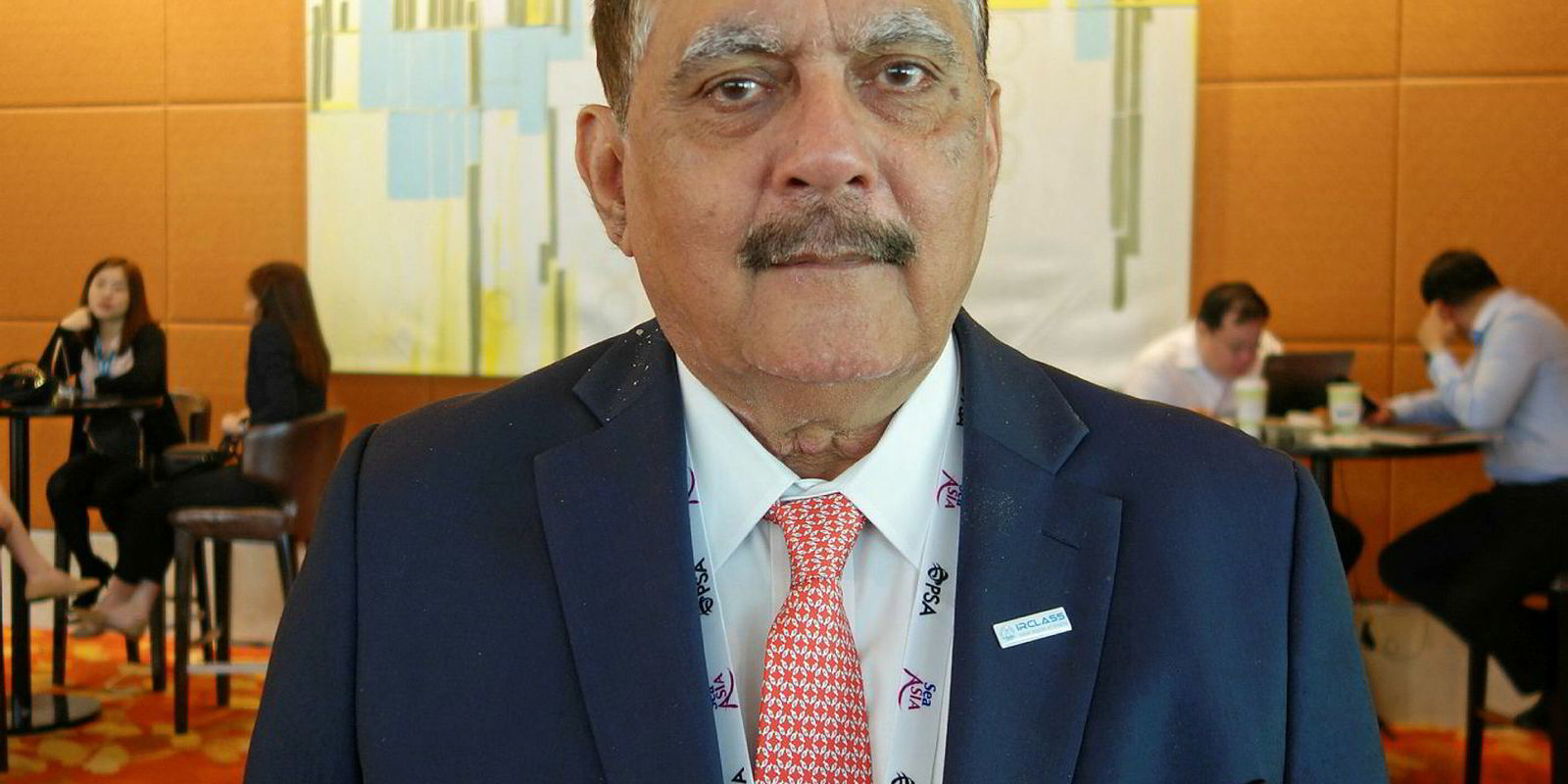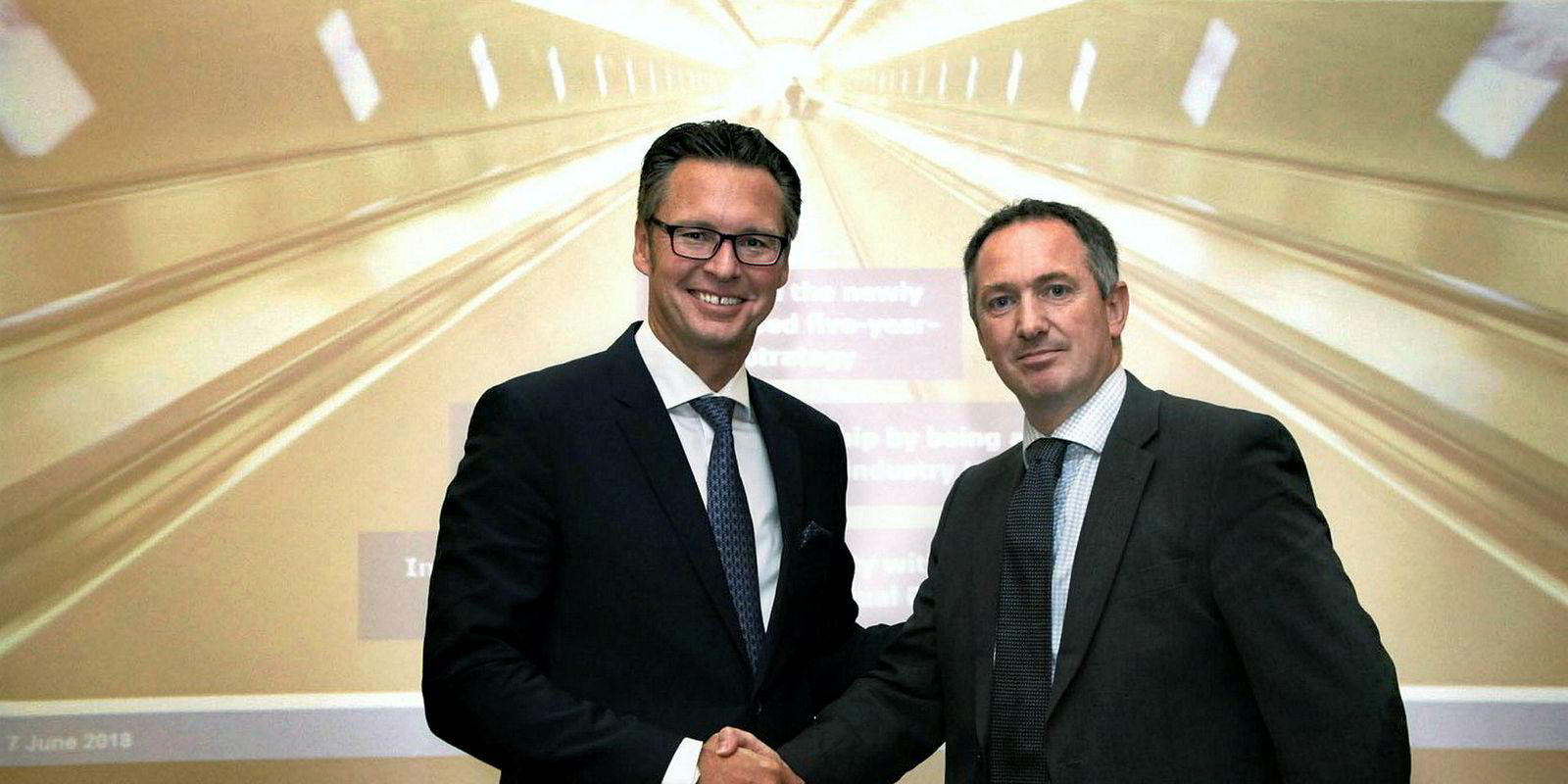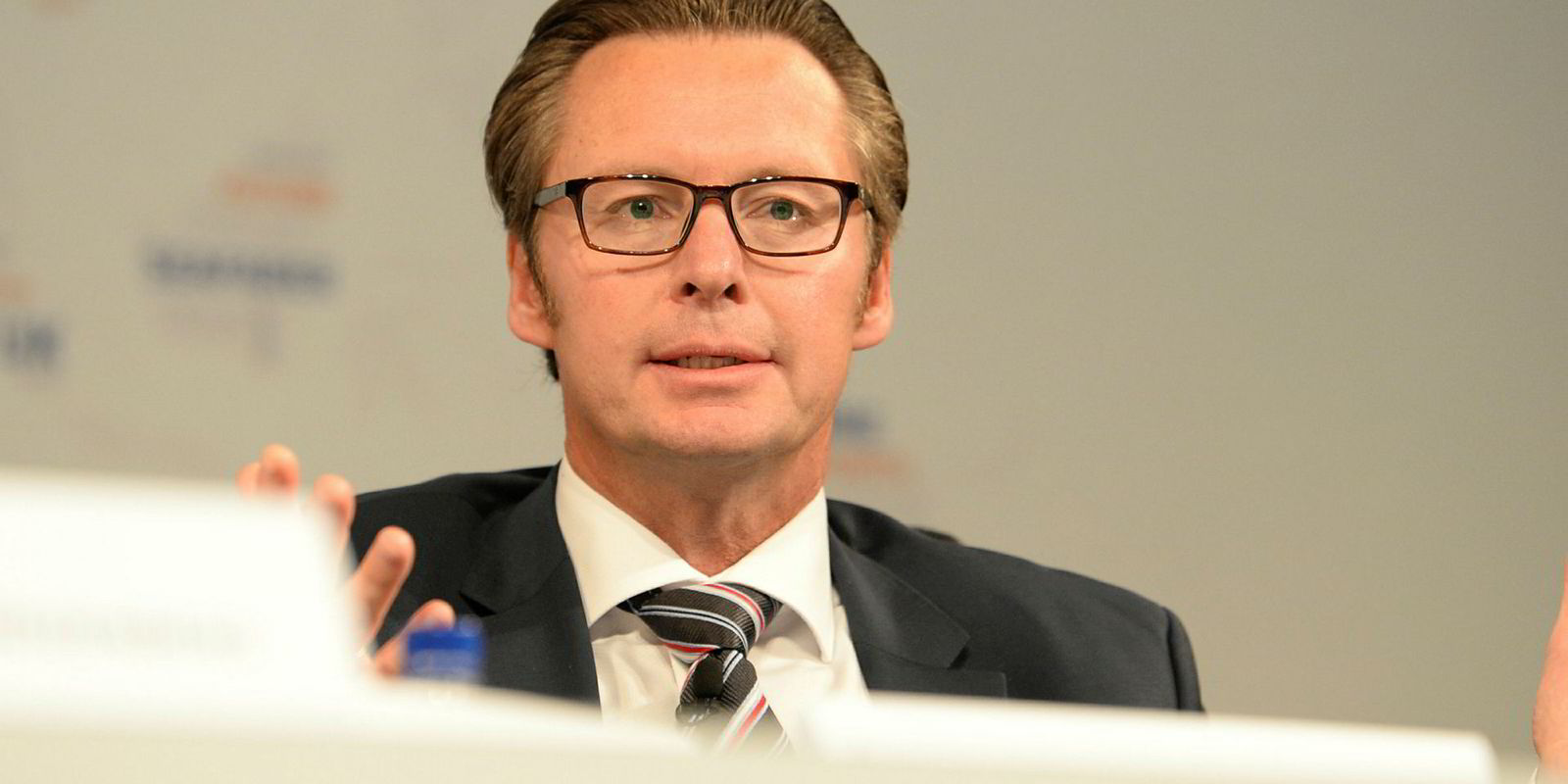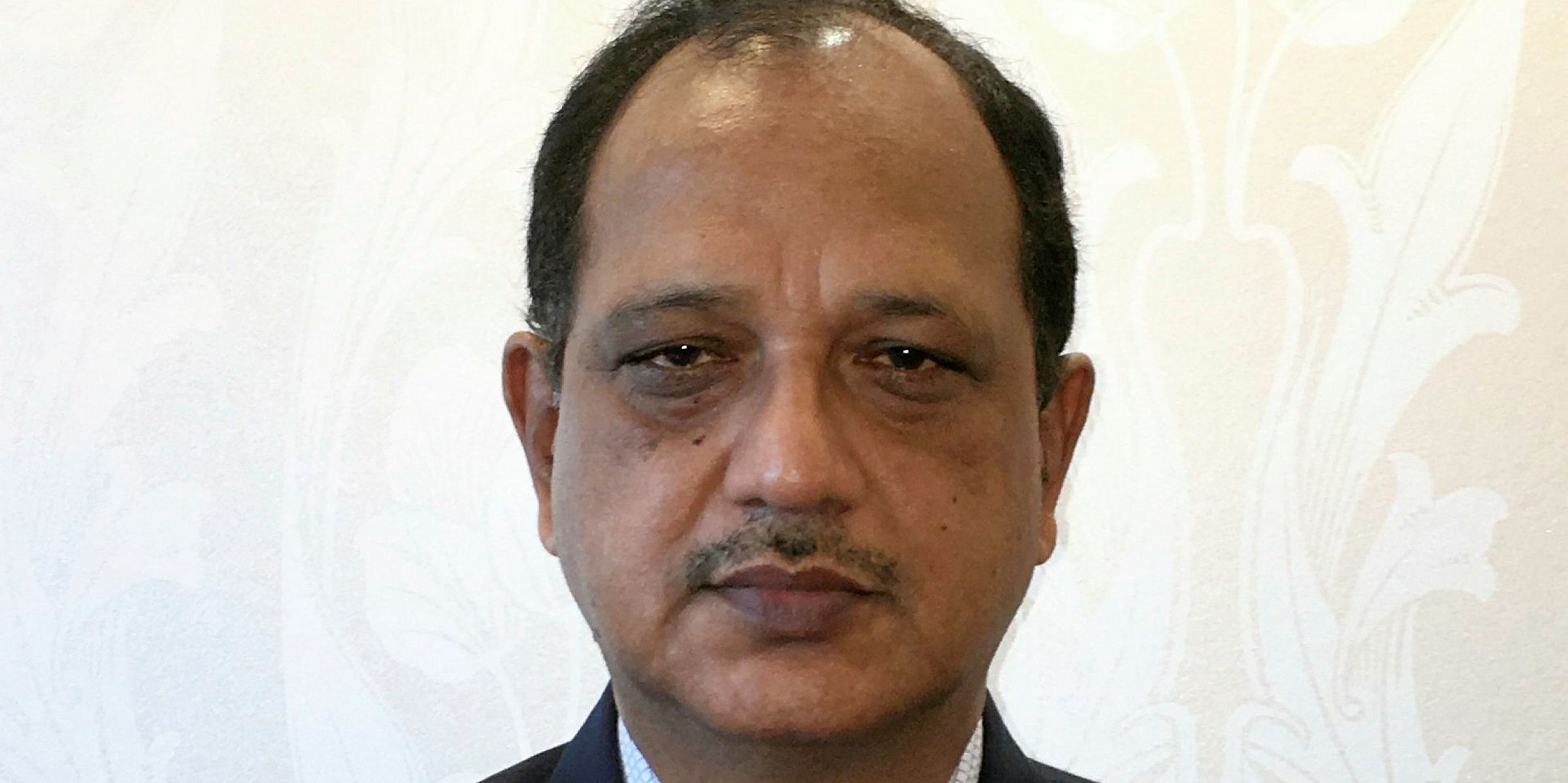Leading the International Association of Classification Societies (IACS) is a prestigious role, but incoming chairman Arun Sharma questions just how much can be accomplished when the tenure is so short.
Sharma, who has been chairman of the Indian Register of Shipping (IRClass) since 2012, will take the IACS helm in July.
A chief engineer before moving into executive roles ashore, Sharma will hold the position for one year but hopes his successors will get to enjoy it for longer.
Tough timelines
“The timelines are very tough for any IACS chair. There are many new regulations coming in. But what can you do?” he tells TradeWinds while on a visit to Singapore.
And it is not just the length of the chairmanship that Sharma hopes to extend. He is also concerned about short tenures of IACS’ general policy group.
“They do the real technical work. Ideally a position on the general policy group should an elected position with a three-year tenure. The group should sit in London.”
Sharma says that the call for longer tenures has been made for some time by IACS members.
“The proposal has been mooted but not yet agreed upon. I will try to bring it in during my tenure,” he explains.
Sharma says that the upcoming IMO 2020 regulations have made 2019 a critical year for classification societies, which are also grappling with a changing role within shipping.
“The role of class has always been safety of life and property at sea, as well as the protection of the marine environment. That will not change,” he says.
Shipowners are no longer looking at class as just being an enforcer of rules. They also want class to be a solutions provider
Arun Sharma
Changing demands
“But with the changing demands of the industry, the role of class also has to change. Shipowners are no longer looking at class as just being an enforcer of rules. They also want class to be a solutions provider.”
This additional role, Sharma explains, is especially needed by smaller shipowners who do not have the dedicated infrastructure that big owners have for creating solutions to ever more stringent rules and regulations, and technically and digitally advanced ships.
Classification societies, he adds, are a storehouse of technical information that shipowners should be able to tap.
However, IACS mandates that class societies limit their roles to classification matters, and this is also something that Sharma would like to address.
“You can either follow the line and not go beyond the mandate, or you can go beyond as long as it does not impact your primary role. But, if you just stick to the rules, your revenue streams will diminish,” he says.
Research and design development is one area where classification societies have greatly expanded their role. Sharma reveals that R&D now accounts for about 40% of IRClass’ revenue.
“You can do other things to expand your role, but perhaps through a different company,” he says.
IRClass targets smaller owners
Sharma will continue as chairman of IRClass during his tenure at IACS, and says the class society will continue its push to expand its global client base.
Over the past few years, it has been actively marketing itself in Europe, Asia and the Middle East, with the Middle East proving to be the most receptive.
Sharma admits that going against the big names in the classification space has not always been easy for IRClass.
“There is no point in going to Europe and knocking on the door of a big company such as AP Moller-[Maersk]. They have their established relationships with the big class societies,” he explains.
“Instead, we are targeting smaller owners with smaller ships.”
But even that has not been without its problems.
“Sometimes when we target a specific country we receive a good initial response, but we quickly find that they are first giving us the ships that nobody else wants. When they see that we wouldn’t compromise on quality, the interest tapers out,” he says.
Risk assessment
Sharma notes that IRClass is now directing its efforts to target owners trading their ships under good flag states. It insists on doing a comprehensive risk assessment before taking on any vessel.
He stresses the need for ongoing efforts to change the perception of IRClass in the global shipping markets.
I hope that through our leadership of IACS we can boost the industry’s confidence in us by showing that we are a quality organisation with the right people and good systems
Arun Sharma
“Class plays a very strong role in a vessel’s tradability as an asset. When I was buying ships, I was also cautious about those classed by certain societies.
“We are recognised by everyone, but somehow in S&P [sale and purchase] people are still wary of IRClass ships. The challenge for us is how to remove this perception.”
Sharma hopes his upcoming role as IACS chairman will help give IRClass more visibility.
“It is a prestigious position, but it is not about me. It is about IRClass,” he concludes.
“I hope that through our leadership of IACS we can boost the industry’s confidence in us by showing that we are a quality organisation with the right people and good systems.”






